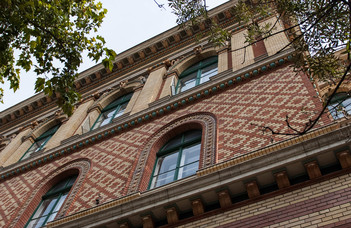About us
About us

The Department of Economic and Social History specialises in the history of European societies, cultures and economic processes from the Early Modern era to the 20-21st centuries. We study and teach the social, economic and cultural development of Hungary within a European context, and we focus on international interactions and transfers, as well as the unique features of the Central European region.
Our research profile incorporates topics such as the social history of politics, the history of middle-classes and elites, microhistory, urban history, the study of gender relations, minority groups and social conflicts, media history, cultural history, the history of private and everyday life, the history of the body and sexuality, the history of the family, the household and demographics, agricultural history, as well as various branches of economic history, from entrepreneurship history through the study of banking and credit system to questions of market economies and globalisation. Theory and historiography play a crucial part in our department’s educational activities, as does a grounding in the perspectives of social sciences. Building on an introduction to the modern trends and schools of history-writing, our students will encounter a wide range of research methods.
The Department of Economic and Social History, founded in 1991, has been present at all three levels of History education for two and a half decades. The department was created during the tumultuous aftermath of the regime change, in the spring of 1991. Its first leader was Vera Bácskai (1930-2018), its founding members Gyula Benda (1943-2005), Katalin Gál, Károly Halmos, András B. Hegedűs (1930-2001) and András Vári (1953-2011.) In 1995, András Gerő took over leadership of the department. The doctoral program tied to the department (currently known as the Doctoral Program of Social and Economic History) began to operate in 1995, under the aegis of the ELTE Faculty of Humanities’ Doctoral School of History.
From the very beginning, the Department of Economic and Social History embraced the task of representing more modern attitudes in university-level History education. The department is still committed to the goal of training well-prepared and internationally well-informed professionals with a broad perspective, who will find a supportive and stimulating environment, a genuine academic workshop here.

